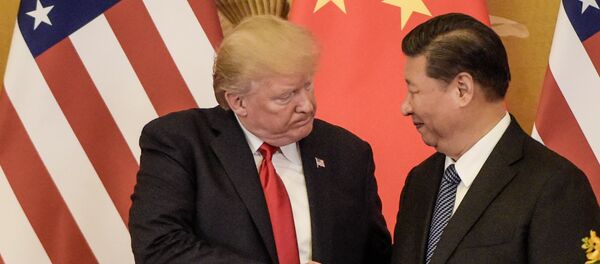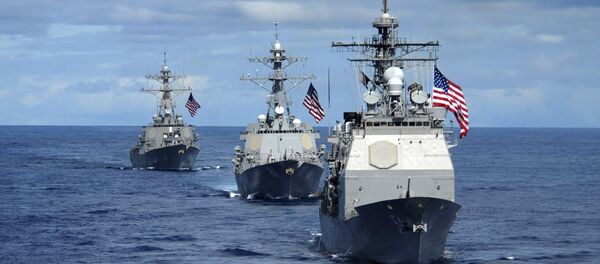In a follow-up to his promise to raise tariffs on Chinese goods, Trump stated that the United States has been losing billions of dollars to China on trade, but the situation will change. Sputnik discussed the upcoming talks with Christopher Bovis, professor of international business law at the University of Hull in England.
Sputnik: US President Donald Trump said on Sunday that he would raise tariffs on $200 billion worth of Chinese goods, putting a trade deal in doubt. What kind of Chinese imports fall under the new tariffs? Who will eventually pay these new tariffs — China or US customers?
Christopher Bovis: Since the impasse on trade negotiations between the US and China, the US administration is resorting to full-blown threats of trade war with China by escalating the tariff schedules on most imports from China. Such imports will cover the majority of manufacturing products in either final form or intermediary form.
Tariffs will only be a measure of protectionism and the ability of the Chinese economy to absorb such increases has been well demonstrated in the past. However, if tariffs become a barrier to trade and not a balanced trade instrument, we will witness a new era of trade wars of unprecedented implications.
The American consumer is the ultimate payer of tariffs as inevitably trade wars which are based on tariff hikes adversely affect the price of end-products and services. Protectionism in the long-run is the enemy of consumers and undermines the positive effects of globalisation.
READ MORE: Buffett on US-China Trade Row: Acting 'Half-Crazy' is Sometimes 'Best Technique'
Sputnik: How do you assess the consequences of the new tariffs?
Tariffs may produce effects in the short-run by protecting domestic economies, but in the medium to long-run, we will see an adverse effect of isolationism and loss of competitiveness. Of course, in the midst of all trade wars which are based on tariff hikes, the consumer is the loser.
READ MORE: Dow Jones Drops 400 Points After Trump Reveals New Tariffs for China
Sputnik: How can China respond? What is the long-term economic impact of this standoff?
Christopher Bovis: China has the capacity and financial clout to respond to any tariff increase from the US. It has surpluses at its disposal which could be balancing any adverse effect from tariff increases for products destined to US markets.
Interestingly, China will respond to any trade war with the US by opening and reforming its economy further. Xi Jinping, in the advent of the 40th anniversary of reforms and opening up, has recently embarked upon a Programme of Deepening Reform, which embraces an ambitious pro-market reform agenda to put the Chinese economy on a more sustainable growth path and to restructure the role of the government and the function of the market. Xi Jinping’s government has engaged in structural reforms amidst of a widespread trade war between the US and China and a fluid geopolitical environment across the world. China announced a further opening of its economy by strengthening the regime of intellectual property protection of foreign companies and by lowering tariff on auto imports.
Christopher Bovis: It would be awkward and embarrassing to negotiate trade relationships between the US and China amidst threats of trade wars. The relationships can deteriorate quickly if they start on wrong footings. There is evidence of good faith, but when the US threatens with consecutive tranches of tariff increases, good faith could evaporate quickly.
Sputnik: Two US warships sailed through the disputed South China Sea on Monday. What is this move aimed at? Do you think such tactics could help win some concessions from China?
Christopher Bovis: This activity seems unrelated to the imposition of tariffs to Chinese products. However, it could be part of the economic diplomacy deployed by the US to remind China of strength and determination when it comes to any type of conflict between the nations.
Sputnik: The deployment of warships came just three days after the Pentagon released a report on Chinese military activities overseas and voiced alarm over them. Can we expect an escalation in the South China Sea now?
Christopher Bovis: I believe the deployment of military power is cursory and not a prelude to any escalation of activities in the South China Sea.
The views and opinions expressed in this article are those of the speaker and do not necessarily reflect Sputnik's position.





